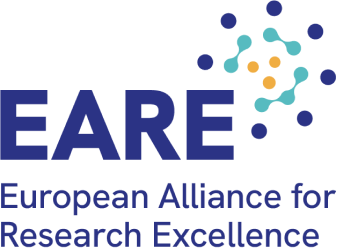
Securing Europe’s leadership in the data economy by revising the Text and Data Mining (TDM) exception
Dear Members of the Legal Affairs (JURI) Committee,
We, members of a broad range of organisations representing universities, large and small technology companies, telecommunications and Internet services providers, startups and scaleups, libraries, scientific and research institutions, and non-profits, are calling on European lawmakers to stand up for the future of European research and innovation.
Members of the JURI Committee need to ensure that Europe secures its leadership position in the data economy, by fixing the Text and Data Mining (TDM) exception in the European Commission’s proposal for a Directive on Copyright in the Digital Single Market. We ask you to revise the exception for TDM to recognize that it applies to any person that has legal access to content, including content that is publicly available on the Internet, and for any purpose.
TDM is an innovative way of reading content one already has lawful access to, but at a much faster rate and at a much larger scale and using software rather than the naked eye. TDM is not about enabling access to copyrighted material for free, and it is not an attack on Intellectual Property and European creation. To put it simply, if someone has the right to read content, then he/she should have the right to understand and analyse that content when computers are used for assistance.
Ahead of the JURI vote, we call on JURI members to go further than the Industry, Research and Energy (ITRE) and Internal Market and Consumer Protection (IMCO) Committees, and adopt a forward-looking approach that will help the European data economy grow, thereby fostering innovation and research and encouraging entrepreneurship and support for SMEs.
If the European Parliament’s work on this file continues in its current direction (i.e. limiting mandatory exceptions), the vast majority of the European research and innovation ecosystem will be penalised, from scientists and students who will have to pay extra licenses, to small businesses and startups who will stop innovating in Europe due to legal uncertainty. The licensing solution is, in itself, flawed, as no one can license the entire Internet, the most mined dataset. The ITRE exception on TDM covers startups but only until 3 years after they are founded. This legal uncertainty and artificial “glass ceiling” will prevent stakeholders from investing in new promising European companies dealing with TDM in a range of emerging fields such as big data, artificial intelligence, machine learning, robotics and others. It is not a small niche sector that would suffer if the ITRE amendments are carried on by the Parliament. The negative implications will be massive for research and the economy.
At a time when European leaders want to lead the “information revolution” and ensure that the Digital Single Market is a success, we ask MEPs to defend rather than harm European research and innovation. On 20 June 2017, 17 European Heads of State called for a “future-oriented and positive approach to emerging technologies such as blockchain, big data, artificial intelligence, supporting both their development, as well as their implementation by our companies”. On 23 June, the European Council also highlighted the “overarching importance of an ambitious digital vision for Europe”.
However, the introduction of a TDM exception by the European Commission, and now supported by the new rapporteur, limited in scope, will lead to the exact opposite.
Public and private research in Europe, along with emerging jobs in big data will be slowed at precisely the moment when other countries, including China, Singapore, Australia and the United States, are eliminating barriers for entities that use TDM and take full advantage of the opportunities provided by the data economy. And businesses will suddenly be confronted with an unintended obstacle as they simply seek to understand and analyse materials they have paid to access or which are publicly accessible on the Internet.
Allowing a broad use of TDM by revising the exception does not create any economic harm: on the contrary, it will help grow the use of TDM, and grow the market for scientific publications, enabling the whole research community, both rights holders and the millions of TDM users, to generate opportunities from the power of data.
Signatories
- Aalto University;
- Allied for Startups;
- Bitkom;
- BSA | The Software Alliance;
- Center for Democracy and Technology;
- Communia Association;
- Computer and Communications Industry Association (CCIA);
- Confederation of Open Access Repositories (COAR);
- Conference of European Schools for Advanced Engineering Education and Research (CESAER);
- DIGITALEUROPE;
- ESOMAR;
- European Alliance for Research Excellence (EARE);
- European DIGITAL SME Alliance;
- Frontiers;
- Ligue des Bibliothèques Européennes de Recherche – Association of European Research Libraries (LIBER);
- OpenAIRE;
- Research Libraries UK (RLUK);
- Science Europe;
- Society of College, National and University Libraries (SCONUL);
- SPARC Europe;
- UCL (University College London).
Want to help us spread the word?
If you too, want the EU to fix the TDM exception, there are several ways you can help us:
- If you want to become a signatory, please send an email to eare@apcoworldwide.com;
- Share the open letter with your networks and other organisations;
- Reach out to MEPs members of the Legal Affairs Committee and Member States representatives and mention the open letter.
Want to download the open letter?
Here you can download a PDF version of the letter to JURI MEPs Open_Letter_on_TDM_to_JURI_MEPs_26_September_2017
Here you can download a PDF version of the letter to the Council Open_Letter_on_TDM_to_the_Council_26_September_2017


